Indian Institute of Mass Communication (IIMC) is one of the Top colleges in New Delhi. It's Affiliated with the University of Jawaharlal Nehru University (JNU). Get Courses, Facilities, Placements, Recognitions & Accreditations details.
Indian Institute of Mass Communication Latest Updates
Indian Institute of Mass Communication, New Delhi is one of the top-ranked university in Delhi, with an excellent academic curriculum, placements, facilities, and esteemed faculty members. Indian Institute of Mass Communication is admission open 2024 accepting applications for all UG and PG courses for the academic session 2024-25. Indian Institute of Mass Communication New Delhi provides Scholarships for student's academic excellence and extracurricular achievements, also offers Merit-Based Scholarships for candidates based on merit scores in National & State Level competative exams as well as College Level Test. Interested candidates can apply to their preferred course by visiting the official website.
Here are some other Updates are as follows:
- The Indian Institute of Mass Communication has recently conducted a placements drive for the 2024 passing out batch students and provides handsome salary packages.
- Indian Institute of Mass Communication is also accepting applications from International Candidates for UG, PG, Diploma, and Certificate courses.
- Indian Institute of Mass Communication New Delhi offered upto 100% Scholarships to eligible candidates based on their academic excellence and extracurricular achievements.
- Indian Institute of Mass Communication, New Delhi has world-class infrastructure facilities for students and staff.
Mass Communication has emerged as a major area of interest and has immensely contributed to the development & empowerment of society. As an academic discipline, it has rapidly acquired importance and become a major attraction for students. The information technology revolution has significantly contributed to the expansion of mass media. It has also posed major challenges for students, teachers, and practitioners of mass media. The rapidly evolving technology scenario is changing the very complexion of the discipline in a manner unknown to any other area of academic activity. It is a challenge that we accept as an essential part of life at IIMC.
Accreditation and Ranking
Indian Institute of Mass Communication is affiliated with the University of Jawaharlal Nehru University (JNU) and is Recognized by University Grants Commission.
Courses Offered
Indian Institute of Mass Communication courses are offered at various levels like under postgraduate diploma courses P.G. Diploma in Hindi Journalism, Post Graduate Diploma in Public Relations and Advertising Management. You can also find a brief overview of the different courses offered by the university across various disciplines with their specializations on the Course page.
Indian Institute of Mass Communication, New Delhi campus life
Campus life at Indian Institute of Mass Communication, New Delhi is just phenomenal. The Indian Institute of Mass Communication, New Delhi, Delhi and its Campus life provides lots of extracurricular activities like talent in dance, singing, art, literature, anchoring, event management, modelling and drama. Indian Institute of Mass Communication New Delhi campus life and environment is lively and friendly. The premises have sufficient facilities- medical help, food, and departmental store, etc. to fulfil every need of the students.
At Indian Institute of Mass Communication campus you get chance to groom your personality, learn something new. Also, All the festivals are celebrated with extreme enthusiasm at Indian Institute of Mass Communication campus New Delhi so that students feel like home. Sports meet and annual college fests are huge stages for students to showcase their talent. Once you will graduate you will definitely miss the Indian Institute of Mass Communication, New Delhi campus life.
Infrastructure and Facilities
Library:
The Institute has the largest specialized library in mass communication in the country. It has collected about 33,968 volumes of Books and bound Journals on different aspects of mass communication and allied subjects such as print media, broadcasting, advertising, communication, communication research, public relations, radio and television, film, information technology, and traditional media. The Library subscribes to over 82 Journals/ magazines and 32 Leading Newspapers. It has also been providing a newspaper-clipping service to its users, including a complete record of news items and leading articles on Mass Communication published in various leading professional journals and periodicals. The library is fully computerized and has automated its housekeeping and service operations through the latest version of Library software LIBSYS 7, On-line public access catalog (OPAC) and Online Journals are available for students and faculty members. The library has also developed a state-of-the-art Multimedia, reference, and Research section for students, faculty, and research scholars.
Computer Labs:
During 2011-12, IIMC joined the National Knowledge Network (NKN), a state-of-the-art, multi-gigabit, pan-India broadband network for providing a unified high-speed network backbone for all knowledge-related institutions in the country. Being part of the National Knowledge Network, IIMC receives broadband internet seamlessly at speeds of 1Gbps or higher. The purpose of such a knowledge network goes to the very core of the country’s quest for building quality institutions with requisite research facilities and creating a pool of highly trained professionals. The high-speed NKN enables scientists, researchers, communicators, and students from different backgrounds and diverse geographies to work closely for advancing human development in critical and emerging areas for the generation and dissemination of knowledge in various fields. The Institute also has a backup 2Mbps broadband internet connection through the NIC, state-of-the-art computers with the latest configurations, and software for imparting instruction to its students and trainees. These facilities provide learning opportunities for the students of the Institute and inter-alia including three Workplaces – Computer Labs, Multimedia, and DTPs available to different groups at a time. The Institute also has teleprinter lines from UNI and Varta, which pour in the latest news 24 hours a day.
Auditorium:
The auditorium of the IIMC Manch, equipped with state-of-the-art infrastructure, was inaugurated in October 2002. The Auditorium/Manch is ideal for seminars, conferences, presentations, cultural programs, etc. It has a seating capacity of 418 people and a covered area of 1232 sq. mts.
Following Facilities are available in the Auditorium:-
Soundproof hall with acoustic and sound-reducing furnishings and panels. Backstage air-conditioned Green Rooms.
Digital sound reinforcement system with feedback eliminators.
Multimedia projection facilities.
Stage furnishing with motorized curtains and cyclopedia projection screens.
Computer-controlled stage lighting.
Computerized management of stage functions.
Cafeteria for refreshment services.
Fire sensors and smoke & flame detectors.
Standby power supply.
Facilities including access for physically challenged persons.
Hostel Facilities:
The IIMC campus hosts three hostels. The hostels can accommodate approximately 100 students. Students of PG diploma courses running at the Delhi campus can avail themselves the facility of hostel. The other hostel with a capacity of 40 rooms is available for Indian Information Service officers and the students of the Diploma Course in Development Journalism. One more hostel for 42 students is under construction.
Admission
Additionally, the institute conducts training in Media & Communication for officers of the Indian Information Services, Armed Forces, and other Central and State Organizations including police and Para-military forces. The course is also open to professionals in non-government sectors.
Application forms for one-year postgraduate diploma courses can be filled through both offline and online modes.
Candidates applying must have done graduation in any discipline.
Selection to the one-year diploma course is based on the entrance exam, Group discussion, and interview.
Applicants of the seventeen-week Development Journalism course must have at least 5 years of media experience.
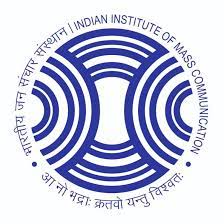
 New Delhi, Delhi
New Delhi, Delhi
 Collage
Collage
 1965
1965
 UGC
UGC
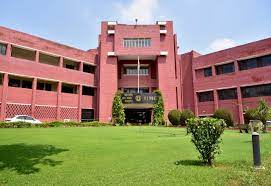
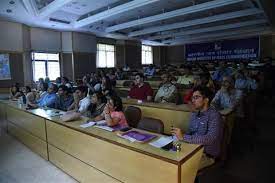
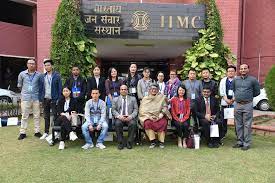
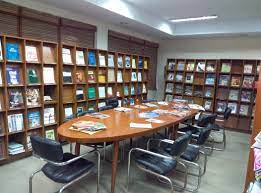
![Dev Bhoomi Uttarakhand University - [DBUU], Dehradun](https://cdn.universitykart.com//Content/upload/admin/lsfohlb4.1j1.png)



 back
back